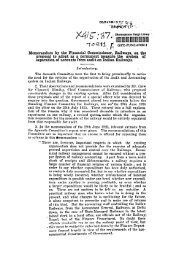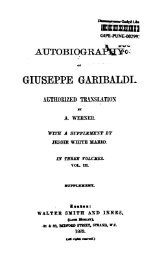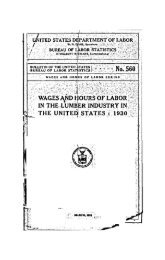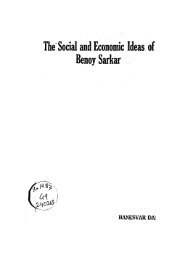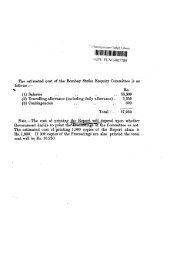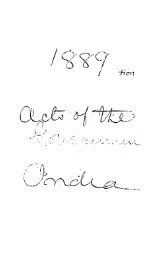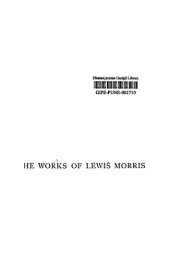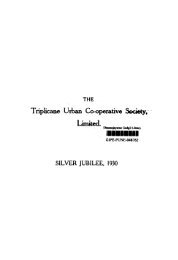Create successful ePaper yourself
Turn your PDF publications into a flip-book with our unique Google optimized e-Paper software.
AugU~~.:'2Ist. 1925 INOIAN OP1N10~ ~o9<br />
------------------,------------~--------------~~<br />
EMPIRE TRADE AND. JAPANESE<br />
COMPETITION<br />
hmu's RIGHT TO FIgCAL AUTOXOMY<br />
In an address before the Manchester Chamber of<br />
Commerce recently, Sir Maneckji Dadabhoy expressed<br />
the opinion that England was slowly moving<br />
towarcis a protectionist policy and asked why<br />
India ehould not be allowed to select· a pohcy in<br />
wtich she believed with the same freedom. He dId<br />
not mean that India's commercial policy should be<br />
directed against Britain'. intereBts, It was rather a<br />
tnatter of muttlal effort fo". mntual benefits. Britain<br />
certamly had rights, which he thought IndIa ought<br />
and would recognise, but, India ehould be in a position<br />
also to protect her right.<br />
The maintenance of- the cotton excise duty was<br />
not of the slightest advantage to Manchester. The<br />
removal would not harm Manchester. There was<br />
no real competitiol) between India and Manchester.<br />
The real competition was between India and Japan,<br />
and possibly AQ1erica. The menace of the Japanese<br />
competition, not only in India but in the world,<br />
was very serious.<br />
Referring to Imperial Preference. he sugge!lted<br />
abolition of the 3 per cent. excise duty' and increase<br />
of Customil import duty on all foreign cotton goods<br />
to 20 per cent. and reduction of duty on British<br />
goods to 7 1-2 per cent.<br />
Sir Maneckji Dadabhoy suggested that Britain<br />
must redoce the cost of production in order to meet<br />
Japanese cotton trade compptition,<br />
Mr. J. H. Rodier, Chairman, Indian Section of the<br />
Chamber, declared if in order to cheapen production,<br />
the standard of living of worker~ in England must<br />
be reduced to the standard of Japan. England would<br />
prefer to lose its preponderance of cotton trade.<br />
LORD BIRKENHEAD'S INDIAN POLICY<br />
•<br />
We do not think that Lord Birkenhead is a teetotaller<br />
and the proper thing to do is perhaps to dismiss<br />
his latest post-prandial effusion on Indian<br />
affairs as the outcome of a man who had dined not<br />
wisely bnt too well. No edncated Enghshman in<br />
his sober senses would claim, as the Secretary of<br />
State is reported to have done, that "we went to<br />
India centuties ago for cQmposing with the s1 arp<br />
edge of the sword differences which would have<br />
submerged and destroyed Indian civilization." This,<br />
as a piece of history, is such a palpable fiction that<br />
It is impossible to believe that Lord Birkenhead was<br />
responsible for his words when he spoke them, if<br />
he did Ilpeak them. 'rhe English. as every schoolboy<br />
knows, came as tradt'rs to India and not as<br />
champions of Indian civili.lation. The Ilword whose<br />
sharp edge helped them to found an Empire was not<br />
theirs but that of Indians. It is the same sword<br />
which helps them to retain Inqia, and when India<br />
elects to wield it herself, Lord Blrkenbead cannot<br />
and dare not refuse to snrrender to her what is hers.<br />
We can, therefore, interpret his lordship'S words<br />
only as intended as a snub to those in this country<br />
who have made non-violence the basic principle of<br />
their mode of acquiring Swaraj. There are worse<br />
things than anarchy. and if India is to be ruled by a<br />
succession of political adventurers from London, the<br />
limit most soon be overtaken. Whether Lord Birkenhead<br />
was quite responsible or not when he made<br />
this insulting, insolent and mendacious speech. he<br />
h.\S forfeited every claim to the rpspect of Indians,<br />
and ~Ir. Baldwin will be ill-serving the interests of<br />
Britain and India if he does not find some sphere<br />
for him where his peculiar talents may be less mischievously<br />
employed.' Lord Birkenhead evidently<br />
wants to start a camp.tign against students who, he<br />
declared, were the principal enemies of the Empire<br />
whether in China, in Egypt or in IndIa •. " Something<br />
must be wrong with an Empire which has incurred<br />
the hostility of the flower of the youth of these<br />
three ancient and civihsed countrielil.-Tha IndllJn<br />
&ci4l Re/ormer.<br />
===~=<br />
THE PRICE OF FREEDml<br />
[By MR. C. F. ANDREWS IN .. YOUNG INDU."]<br />
There are certain things that are ofwn said ·in India,<br />
which are most distressing to hear. One of the<br />
saddest of these is to hear. from the lip!! of youn~<br />
men. words, spoken in despair, in some such aocents<br />
as these.<br />
" We are a subject people; and the subjectIon<br />
of centuries, un



